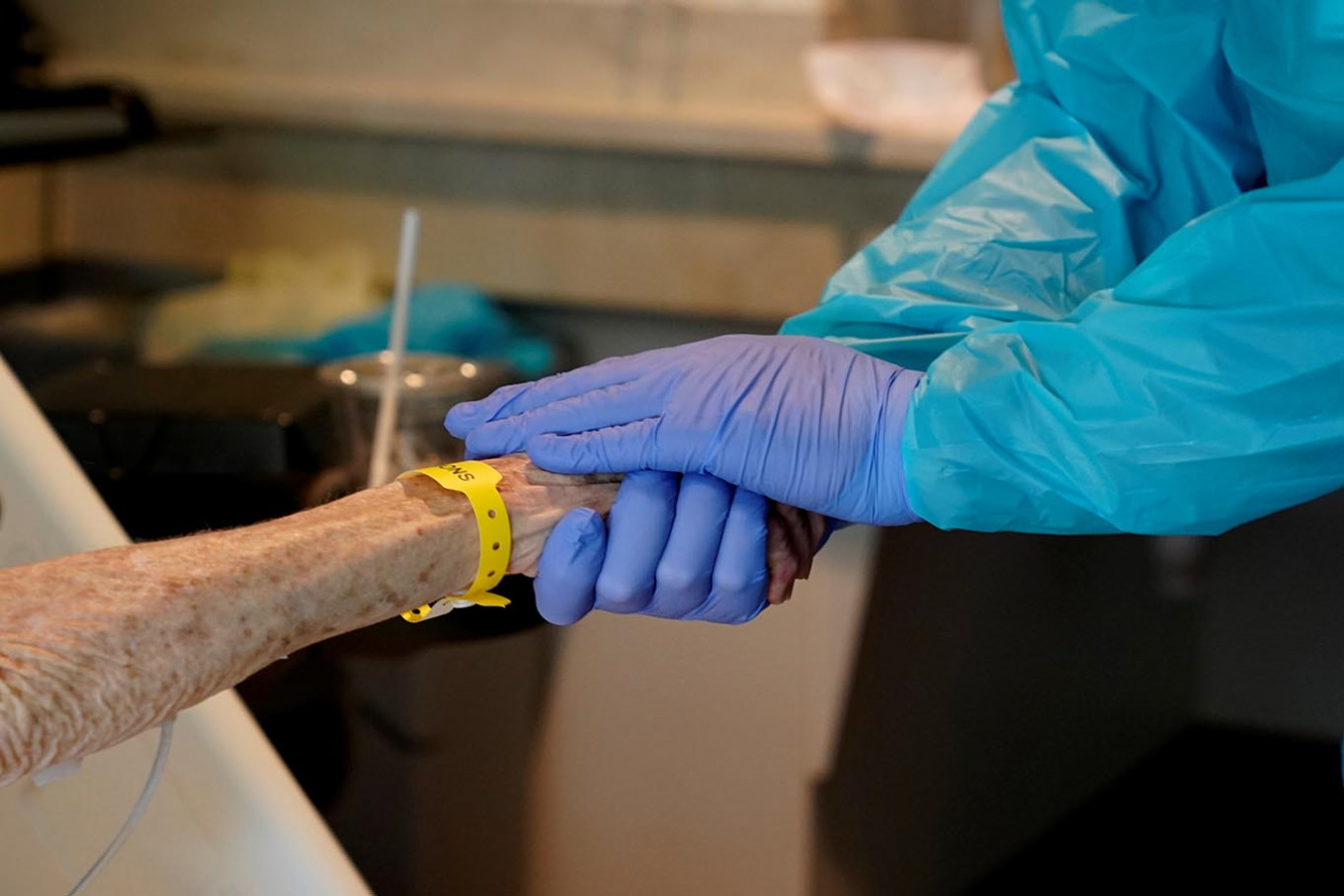Popular Reads
Top Results
Can't find what you're looking for?
View all search resultsPopular Reads
Top Results
Can't find what you're looking for?
View all search resultsMen may be 2.5 times more likely to die from COVID-19 than women
Men may be more likely to die from COVID-19 than women, according to new research.
Change text size
Gift Premium Articles
to Anyone
N
ew Chinese research has found that men may be more likely to develop a more severe case of COVID-19 and die from the disease than women, although it's still unclear why.
Carried out by doctors at Beijing Tongren Hospital, the new study set out to investigate whether there are any differences in how COVID-19 develops in men and women after the physicians noticed that the number of men dying from the virus appeared to be higher than women.
"This raised a question: are men more susceptible to getting or dying from COVID-19? We found that no-one had measured gender differences in COVID-19 patients, and so began investigating," said physician and researcher Dr. Jin-Kui Yang.
To do so, the team looked at 43 patients with COVID-19 who the doctors had treated themselves along with 1056 COVID-19 patients whose data was publicly available. As the COVID-19 virus is also similar to the one that caused the SARS outbreak back in 2003, the doctors also looked at data gathered from 524 SARS patients to observe any gender differences in this group.
The findings, published in the journal Frontiers in Public Health, showed that among the patients with COVID-19, those who were older and had specific underlying conditions tended to develop a more severe case of the disease and were more likely to die, a finding which is perhaps not so surprising given that so far, elderly patients and those with certain pre-existing conditions have appeared to be at greater risk.
Read also: Indonesia’s men more susceptible to COVID-19 than women: Health Ministry
However, the researchers found that the male patients also tended to have more a severe case of the disease, and that over 70 percent of patients in the large COVID-19 dataset who died were men, meaning that men had almost 2.5 times the death rate of women. Being male was also a significant risk-factor for disease severity, regardless of age.
When the researchers analyzed the data taken from the SARS patients, they also found a significantly higher rate of death among the men.
Moreover, levels of a protein called ACE2, which is found on the cells that are attacked by the virus that causes COVID-19 and SARS, tended to be higher among the men, those with cardiovascular disease, and patients with diabetes, all of whom have been found to have worse outcomes if they contract COVID-19.
The researchers point out that the study is the first to investigate gender differences in COVID-19 patients, although it is still unclear why some people are more severely affected by COVID-19 than others. They add that further research is now needed, and larger studies should be carried out to confirm their results.
In the meantime, as the findings suggest that men are significantly more likely to die from COVID-19, even though men and women are equally likely to contract it, they note that additional care may be needed for older men or those with underlying conditions, such as heart disease and respiratory conditions, who are also at greater risk of severe disease and death.
"We recommend that additional supportive care and prompt access to the intensive care unit may be necessary for older male patients," said Yang.











